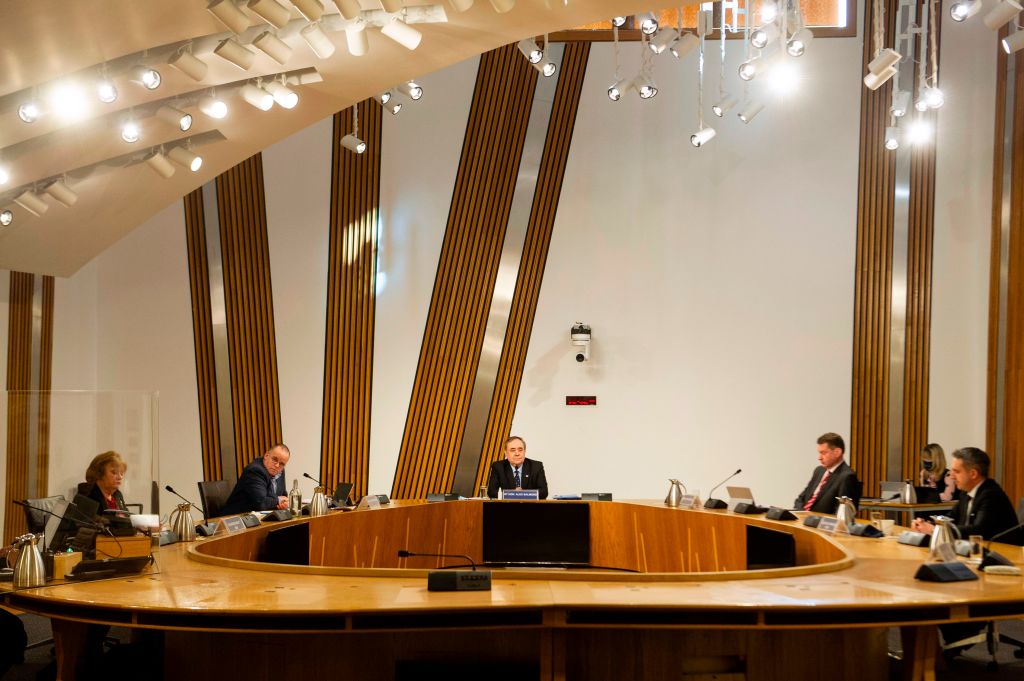It’s not the crime, it’s the cover-up: just as Watergate exposed the workings of the Nixon White House the Salmond inquiry is giving the world a glimpse of how the SNP works in Edinburgh. And how the SNP-led committee investigating Nicola Sturgeon is shameless in its determination to rig the system.
First, the committee tried not to publish Alex Salmond’s full evidence against Nicola Sturgeon citing legal reasons. That defence fell apart when The Spectator went to the High Court. Then, outrageously, the Crown Office (Scotland’s state prosecutors) told the committee to censor Salmond’s evidence. Leading to a question: what on earth was it playing at by interfering with parliament? Would the Crown Prosecution Service ever dare to interfere with a Westminster inquiry in this way? And how can the Crown Office claim to be independent when it’s led by a member of Sturgeon’s cabinet?
The separation of powers – or lack thereof – has become part of the scandal. Tomorrow the Lord Advocate, the Crown Agent and the Advocate Depute are all appearing before the Holyrood inquiry to speak about their role. And hopefully, why they were trying to censor a political inquiry in defiance of the High Court judgment.
An uncomfortable grilling? Nope: it’s just emerged that the witnesses will meet with the committee in private first, before giving their evidence in public. Margaret Mitchell, deputy convener of the inquiry, has quite rightly cried foul – and has warned the Lord Advocate against trying ‘to influence what the inquiry can or cannot publish in its final report’.
So yet again, the real problem stands exposed: how the SNP establishment closes ranks when it’s under threat. To have a closed session flies in the face of the notion of transparency and democratic accountability – and this, increasingly, is what the Salmond case is all about.







Comments